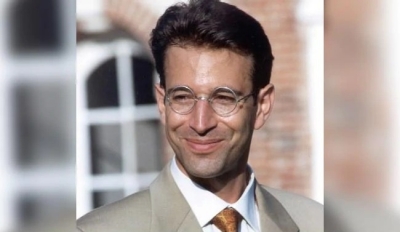Sindh govt challenges HC verdict in Daniel Pearl case
By IANS | Published: April 23, 2020 12:14 PM2020-04-23T12:14:51+5:302020-04-23T12:30:07+5:30
Pakistan's Sindh government has challenged the provincial verdict in the kidnapping and murder case of American journalist Daniel Pearl before the country's Supreme Court, it was reported on Thursday.

Sindh govt challenges HC verdict in Daniel Pearl case
Karachi, April 23 Pakistan's Sindh government has challenged the provincial verdict in the kidnapping and murder case of American journalist Daniel Pearl before the country's Supreme Court, it was reported on Thursday.
In its April 2 order, the Sindh High court (SHC) had overturned the conviction of Ahmed Omar Saeed Sheikh for killing the South Asia Bureau Chief of The Wall Street Journal 18 years ago, reports Dawn news.
The SHC had also acquitted three other accused Fahad Naseem, Sheikh Adil and Salman Saqib, who had been earlier sentenced to life imprisonment by an Anti-Terrorism Court (ATC) of Karachi.
But the provinical government has re-arrested and detained the four accused for a period of three months, pending filing of the appeal.
Pearl, 38, was was abducted Karachi in January 2002. A graphic video showing his decapitation was delivered to the US consulate a month later.
Subsequently Omar Sheikh was arrested in 2002 and sentenced to death by the trial court.
On Wednesday, Sindh Prosecutor General Fiaz Shah moved the appeal before the top court on the grounds that the "last seen evidence", "impersonation" and "identification parade" was proved against the accused persons and maintained concurrently by the trial court.
Moreover, the appeal pointed out that the video showing the committing of murder of the journalist had been verified by a public official and was never challenged.
The SHC did not appreciate that there was overwhelming incriminating evidence on record against the accused connecting them to the offences with which they were charged, it said, adding that they had committed offences they were charged for in league with each other with their common intention and object and were liable to be punished accordingly.
( With inputs from IANS )
Open in app